Editor’s Note: This is the second of four stories profiling soldiers and their families whose lives were defined by the Iraq war. The first was published Sunday.
Story highlights
Both Nathan and Raquel Dukellis served in Iraq; he returned to shut down U.S. bases
On this deployment -- his fourth -- he went back to the city that haunts the couple's marriage
They talk candidly about love's battle with separation, fear and doubt
Nathan says this deployment was like coming full circle -- with the war and with his marriage
The pictures on the walls at the Dukellis home tell the story of the couple’s time together – and apart.
There’s Nathan in his uniform with his comrades. There’s Raquel with her sisters. Nathan serving in Iraq. Raquel working.
They’re pictured together occasionally – at their wedding, of course, and in a recent photo, during a vacation in the mountains.
At first glance, Raquel and Nathan Dukellis seem an unlikely pair. She’s outgoing; he’s reserved. She has a large, extended family; he is an only child. Both sport tattoos on their arm – Herman Munster appears on hers; his arm features her name and a skull.
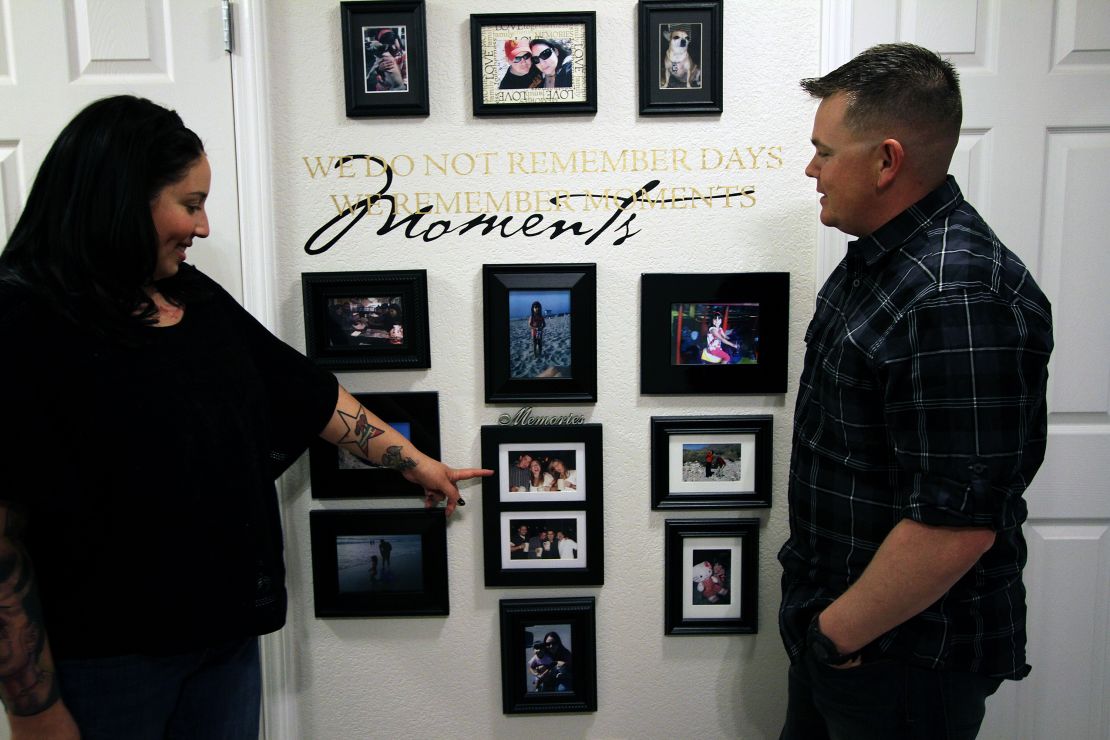
But it is their differences that drew them together, friends say. That and a passion for adventure.
What could be more adventurous than joining the Army and seeing the world? That’s how they met and married. And in March 2003, the couple found themselves sitting together in a tent in the Kuwaiti desert just hours before the invasion of Iraq.
Raquel would eventually get out of the Army. But Iraq has never stopped shaping their lives. Nathan’s most recent deployment – to turn out the lights at U.S. bases before the withdrawal of American troops – was his fourth.
The mission would mean yet another test for a marriage that’s been to the brink and back. Raquel filed for divorce in 2007 before the couple decided to give it another go. Married 11 years, they’ve been apart nearly half of it with training and deployments.
This new assignment felt uncomfortable to Raquel for another reason, too. The path through Iraq this time would take 33-year-old Nathan to Forward Operating Base Marez on the outskirts of Mosul near the borders of Turkey and Syria.
Mosul was where Saddam Hussein’s sons, Uday and Qusay, were killed in a gunbattle with Nathan’s unit at the time, the 101st Airborne. It was also the place that almost fell to insurgents after Iraqi police fled their posts, leaving American soldiers to hold the city.
It was this city, in a way, that haunted the Dukellis marriage. Not the place itself, of course, or its 1.8 million inhabitants. But rather what it signified: the time, the distance and the horrors of war.
That city, Raquel says, shaking her head.
Love in envelopes
Raquel, 30, joined the military shortly after graduating from high school. It was a perfect fit for the headstrong girl from Torrance, California, who never followed convention.
When friends were getting married and having babies, she was going through basic training. When other girls were shopping at the mall, she was using her time off at a base in Germany to travel Europe.
She had no way of knowing then that her military service – and her married life – would be defined by Iraq.
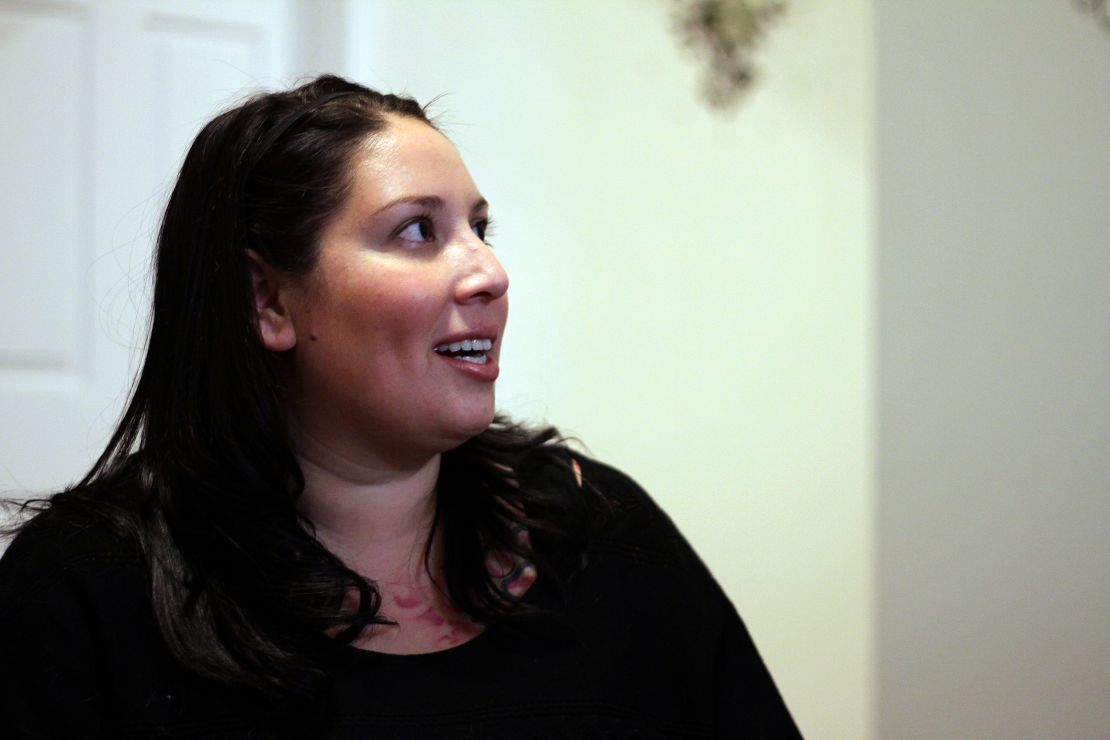
There was life before the invasion, when she was a soldier considering doing a career 20 years in the Army. And there was life after the invasion, a time defined by fear – for her life, for her husband’s and for their marriage.
On the eve of the March 20, 2003, invasion, at a remote base in Kuwait, Nathan went tent to tent, looking for Raquel.
They’d been assigned to different bases in Kuwait and hadn’t seen each other for weeks. But soon, Nathan would make an air assault into Iraq with the 101st Airborne and face Hussein’s fierce Fedayeen fighters near the revered Shiite holy city of Najaf in southern Iraq.
He had been relocated in the hours leading up to the invasion to the same base as Raquel. He made the rounds, asking everyone: Have you seen my wife? Do you know her?
One soldier ran into Raquel after talking to Nathan. He recognized her by the name tag on her uniform.
“I think somebody is looking for you,” he told her. “He has the same last name as you.”
Minutes later, the couple embraced.
There was so much to be said, and so little time. Nathan handed Raquel a letter. Then he was gone.
She followed him more than a week later, pushing across the Kuwait-Iraq border as part of a convoy carrying communications equipment for troops. She began writing letters to Nathan.
She didn’t know if or when he would receive them. But writing them drew him close to her; she wanted to tell him what she was thinking, what she was feeling.
She read and reread his letter to her. In it, he pledged his love and told her: If he didn’t make it back, she should go on and live a full life.
Anxious waiting
Months passed before they saw each other again. It was from a letter that Nathan learned his wife was only a few miles away at Marez, near Mosul.
He left his outpost, and they were reunited at the base.
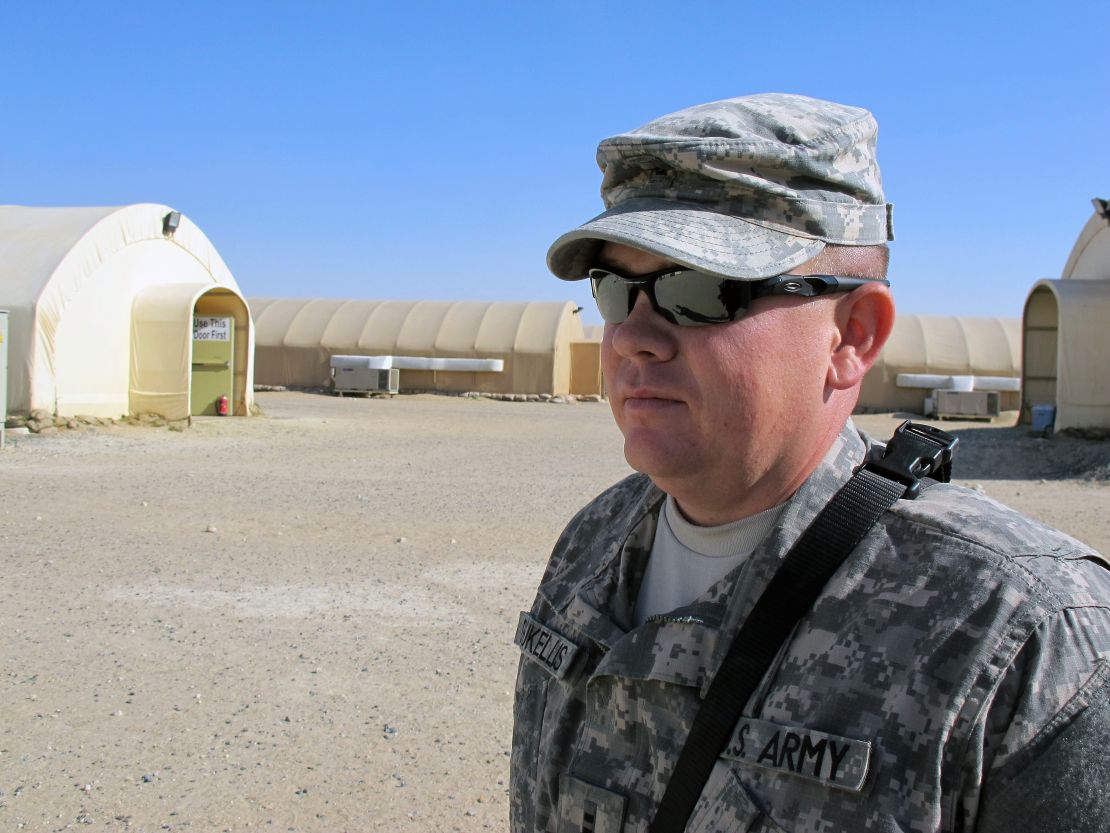
It was also at Marez that Nathan, who was from Perris, California, said goodbye to Raquel five months after the invasion. Her tour was over; she was getting out of the Army. It was a decision they’d made long distance, in an exchange of letters.
Raquel returned to Fort Campbell, Kentucky, where she waited for word from her husband. Sometimes she refused to leave the house, worried she would miss his call. She followed the news stories about the fighting, saw the casualty reports. She knew firsthand that conditions were tough.
It was the early days of the war, when suicide bombings and roadside bombs – known as IEDs, or improvised explosive devices – were becoming the weapons of choice for insurgents.
The nightly news was filled with images of death and devastation. Raquel had nightmares about Nathan.
Then came the telephone call from Mosul early on a morning in September 2003.
Nathan’s patrol had hit an IED. The force of the explosion had blown in the front window of his vehicle, sending glass and debris into his face.
“I’m OK,” he told her. “It’s just some cuts.”
He wouldn’t tell her about the other horrors.
About seeing the body of his friend, Staff Sgt. Morgan D. Kennon of Memphis, Tennessee. He was killed by a rocket-propelled grenade while guarding a bank in downtown Mosul.
Or that another friend, Spec. Alex Leonard, had lost his legs.
Those conversations came later. Much later.
Life on hold
Raquel was startled by Nathan’s appearance when he returned from the first deployment. He had dark circles under his eyes. Small scars dotted his face from the explosion.
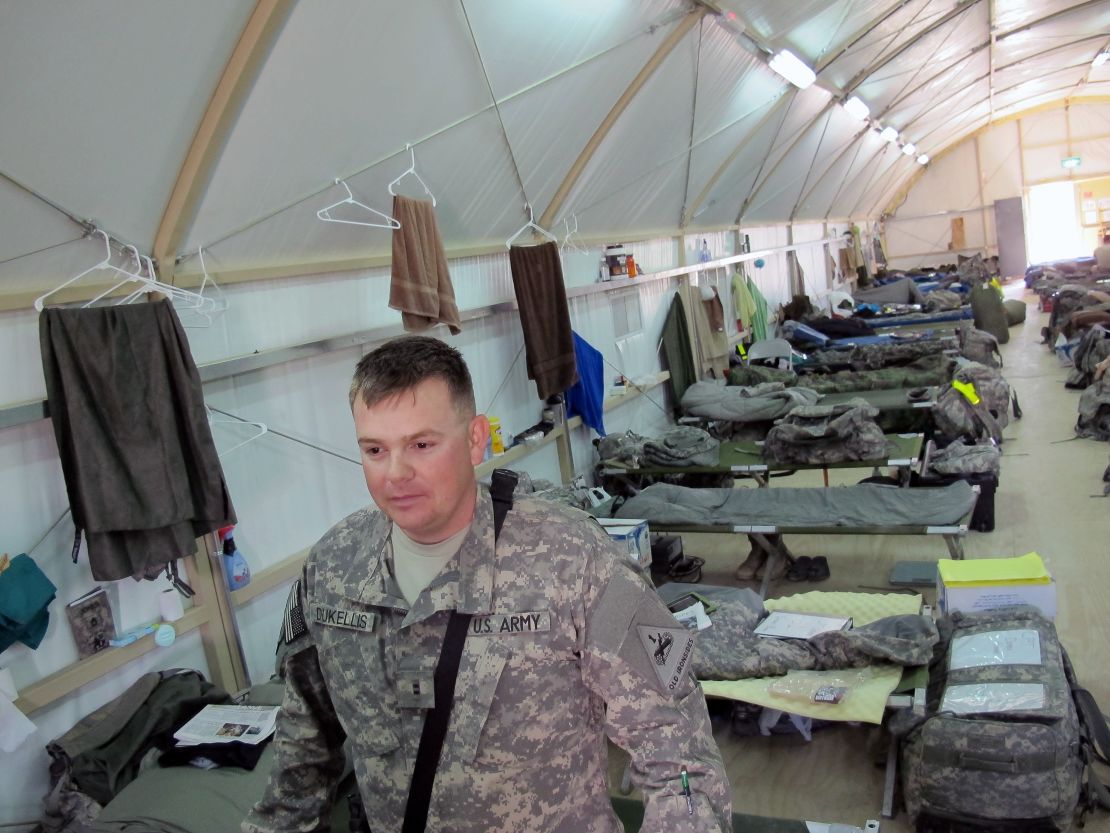
But it was what she couldn’t see that concerned her.
He was agitated, jumpy. He didn’t sleep much. And when he did, he sometimes awoke screaming orders.
He wouldn’t wear or display his Purple Heart, and he wouldn’t talk about it.
“He came back with so much anger,” she said. “I would ask him about what happened there, and he wouldn’t tell me.”
Raquel was struggling, too.
The violence in Iraq was escalating, and troops who returned home only months earlier were expected to deploy again. Raquel decided she and Nathan should put off having a family.
“People think I’m selfish because I don’t want to bring a child into this,” she said. “I don’t want my child to grow up without a dad – because that can happen.”
At first, Nathan didn’t understand.
In the months leading up to his second deployment, in 2005, they began to fight. Theirs had always been a tempestuous relationship, marked by passionate arguments. But this time, it was different. The words cut. They were meant to hurt.
Nathan struggled to tell her what he was feeling, reasoning that he was protecting her from “the bad stuff.” She felt left out of his life, pushed away.
Hanging on to a marriage
By 2007, after Nathan returned from his second yearlong deployment in the flashpoint city of Kirkuk, north of Baghdad, their marriage was at a breaking point.
It wasn’t any one thing, they would both later say. It was just more of the same.
Sure, there was that post-deployment “honeymoon period,” when couples get to know one another again and typical daily pressures seem so unimportant.
But within months, it gives way to reality.
Again, Raquel asked questions. Again, Nathan struggled with what to tell her, and with what to keep to himself.
She learned from one of his comrades that he had narrowly missed being shot in the head. When she asked her husband about it, he played it down.
“I couldn’t understand why he didn’t tell me,” she said.
Nathan was home, but he wasn’t really there, Raquel said later. “He turned into something completely different.”
Then Nathan was offered the opportunity to advance his career – to become part of the junior officer corps. The move meant relocating to Fort Sill, Oklahoma.
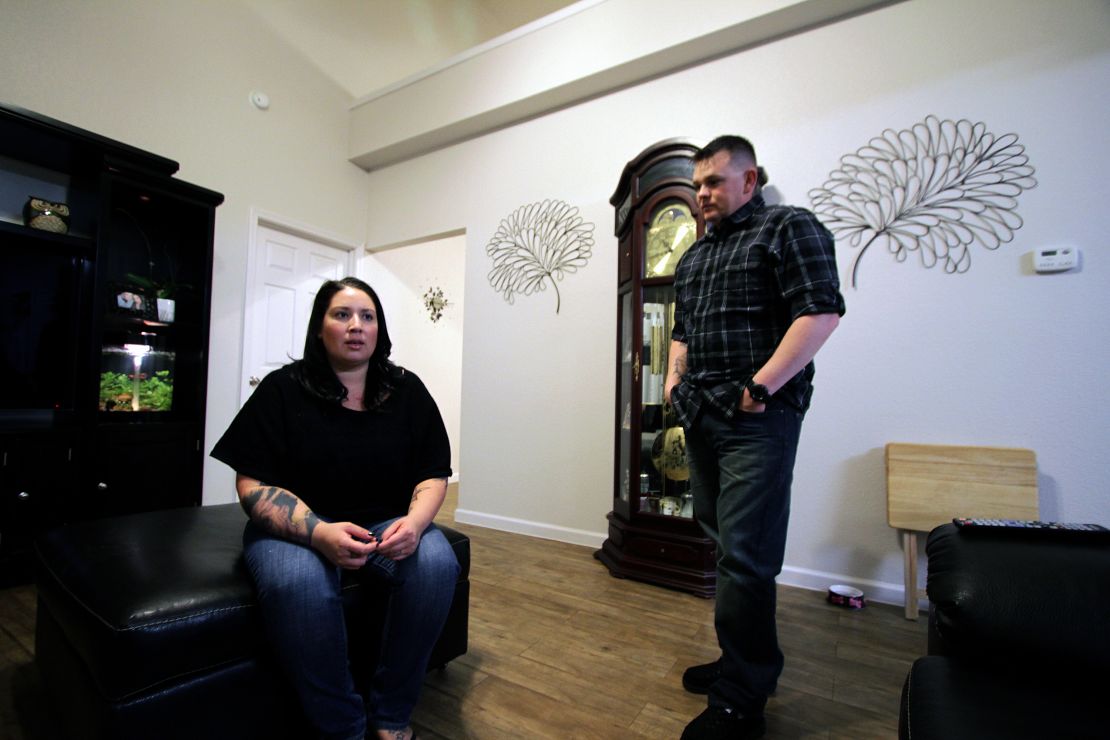
Raquel hit the breaking point.
“I want a divorce,” she said. Weeks later, she filed the paperwork to end their marriage.
The time alone at Fort Sill, a thriving military base southwest of Oklahoma City, gave Nathan the chance to think.
He loved this woman. He didn’t want their marriage to end. Not without a fight.
He picked up the phone, asked her to join him and fight for what they had. On the other end of the line, Raquel cried.
Love, they both knew, was never the issue. They had lots of that. Somewhere in the years of war, the years of separation, they had gotten lost.
In that call, with miles between them, they vowed to make a go of their marriage.
Back to Mosul
The post-9/11 landscape, with its repeated deployments, has seen an increase in the rates of divorce among military marriages.
During the past decade, coinciding with the wars in Iraq and Afghanistan, the divorce rate among active-duty service members has increased from 2.6% in 2001 to 3.6% in 2010. In 2009, there were more than 27,000 divorces, according to Pentagon records. In 2010, there were nearly 30,000.
“What’s that saying? If the Army wanted you to have a family, they would have issued you one,” Raquel says, laughing as she recites the joke often told among military spouses.
The Dukellis’ union withstood yet a third deployment in 2009; Nathan was away for another 12 months as part of a mission to train Iraqi security forces in the southern Shiite heartland. His job was to work the radar, tracking rocket attacks at the base.
With news there would be a fourth mission – to shut down the U.S. bases – Raquel was worried. Nathan would have to return to Mosul, the scene of so much bad luck.
Days before he left in July, Nathan verbalized what his wife felt: “You almost feel like you’re pressing your luck.”
A different feeling
If Nathan wondered what it would be like to return to the city where he had been wounded and lost his friend, he wouldn’t have to wait long for an answer. Within days of his arrival, there was a rocket attack on the base.
“I didn’t have a bad dream about it or anything. But yeah, I thought about it,” he said.
The base at Mosul was different than Nathan remembered. It was bigger, with more buildings. But he could also see the transition that was under way.
Local shops closed. Then the dining facility on the base. Then the laundry. Even the airfield where he’d bid goodbye to his wife all those years ago was turned over to Iraqi security forces.
It was quiet, really quiet.
During the 2003 and 2005 deployments, when Iraq got quiet it signaled to soldiers that insurgents were up to something. This time, though, it just seemed like it was “all sort of ending,” he said.
As a result, he found himself with more free time. More time to talk with Raquel.
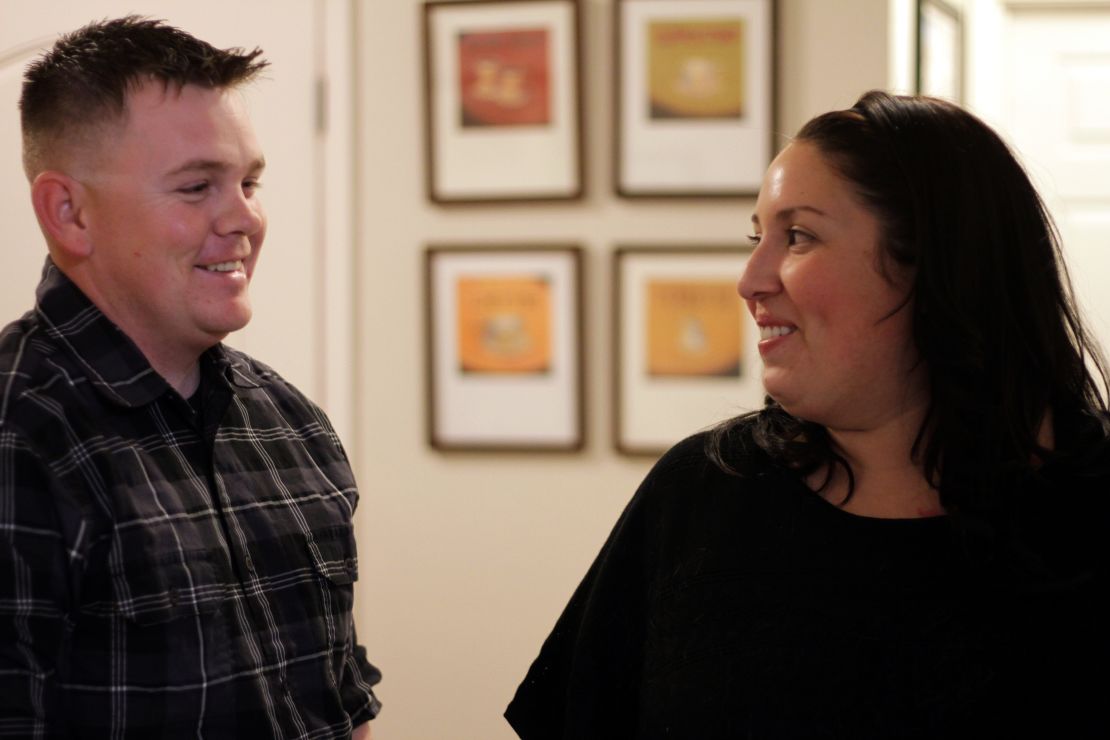
During those conversations by text message and e-mail, Raquel told him she was determined to do other things during his deployment besides work. She was thinking about volunteering at an animal shelter where animals were killed if they weren’t claimed.
“Why would you do that to yourself?” Nathan asked via e-mail.
“Because I want them to see a kind face before they are killed. I want them to know that the world is not full of hate,” she told him.
That was his Raquel, he said later. He wasn’t surprised when she told him she’d adopted a dog. She named her CoCo – for one of her favorite designers, Coco Chanel.
Have you heard of this Westboro Baptist Church, she asked in one text message.
She was incensed that the group known for protesting at the funerals of soldiers was coming to El Paso, Texas, to demonstrate at the service of a young man killed in Afghanistan.
She was joining a call for volunteers to stand between the protesters and the church service, forming a human shield for the grieving family.
Her husband was in Iraq, risking his life. And she was damned if she would allow anybody to do that to her family were it her husband, she told Nathan.
He smiled. That was his Raquel.
Even though the couple had Internet access and telephone service at the base, they added another way to communicate.
“Hey Chief, you have a letter,” a soldier yelled across the office at Nathan.
A letter? You mean a package, he said. Raquel was regularly sending boxes filled with goodies.
No, a letter.
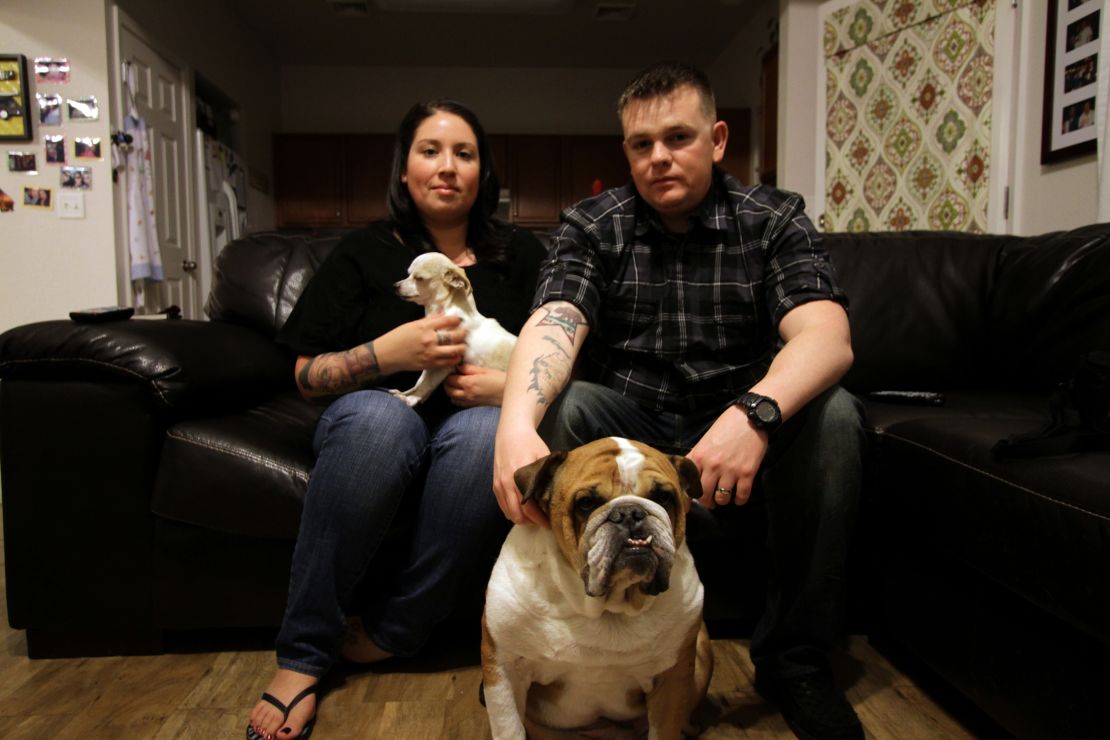
It was a love letter, a note from wife to husband, saying how much she missed him. There was no mention of Mosul, no talk of Iraq.
Closing down, opening up
Sitting in a double-wide trailer, home to the Starbucks at Kuwait’s Camp Virginia, Nathan reflected on the impact of more than eight years of war on his marriage.
It was the eve of the anniversary of the death of Kennon, his friend killed in Mosul. He admitted he still hasn’t shared with Raquel all the details of that day.
“She knows what happened to him. I told her. But she doesn’t need to know all that. I don’t want her to worry,” he said.
Pushed, Nathan admitted he still doesn’t display his Purple Heart. He doesn’t talk about his brushes with death.
“It would be selfish for me to talk about it,” he said. “I got to go home to my wife.
“Some of them had to learn how to walk again, learn to talk again. I walked off the plane at home.”
The road out of Iraq took him through Mosul, Kirkuk and the southern Shiite heartland, each a place that had affected him profoundly.
In a way, he said, this deployment was like coming full circle – with the war and with his marriage.
“Initially, it almost ripped us a part.” Now, “it’s sort of brought us back together,” he said.
This time, they talked.
This time, he shared and she listened.
